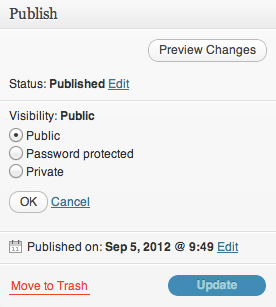Public work and Partner Organizations:
All products created by the DataViz seminar, along with written accounts of the process, are designed to be publicly shared on the open web, to increase knowledge about social policy issues and the data visualization tools used to illustrate them. All of our works will be credited to the creator(s), with proper acknowledgements to partner organizations, data providers, and tool providers, with a link to the DataViz seminar at Trinity.
However, we agree to make our work private when requested by a partner organization, in cases such as:
- If confidential individual-level data must be restricted to protect anonymity, we can limit access with password-protection, and/or mask data (by disguising individual details), and/or aggregate data into larger units (such as grouping many individuals into neighborhoods,
- If a partner organization requests that works-in-progress be hidden from public view until final approval is granted for public release, we can password-protect the works to make them visible only to the partner organization and members of our seminar.
All privacy agreements will be made in writing (such as an email) between the Trinity student, the instructor, and the partner organization.
Public Work and Student Privacy:
This course requires students to post their work on the public web because our ideas become clearer and more valuable when we share them and receive feedback from others. Unless marked otherwise, all content on this site is freely shared by the author(s) under a Creative Commons Attribution-NonCommercial-ShareAlike 3.0 license. This means that the author(s) listed in the byline holds the copyright, but content may be freely adapted and redistributed under the same terms, if the original source is cited. (Note: links to other sites may have different terms.)
While the default setting is for all student posts to be public, all grades are private and accessible only by the individual student, in accordance with the federal Family Education Rights and Privacy Act (FERPA). If a student desires additional privacy on the public web, s/he may publish posts for this course using only a first name, or initials, or a pseudonym approved by the instructor.

After an assignment has received a grade, students also have the right to change its visibility (to password-only, or private) or delete it from the site entirely. Students who co-author a post must reach this decision jointly.

Similarly, each student in this seminar is required to submit work with a Google username, but the student create a separate Google account that displays only a first name or approved pseudonym if additional anonymity is desired.
In turn, the instructor promises to maintain student posts (or links to posts) until the course is offered again (or longer, if feasible), so that students have the option to link to their work on their resumes or personal websites. Additionally, the instructor will moderate and remove any inappropriate comments on student work on the class site.